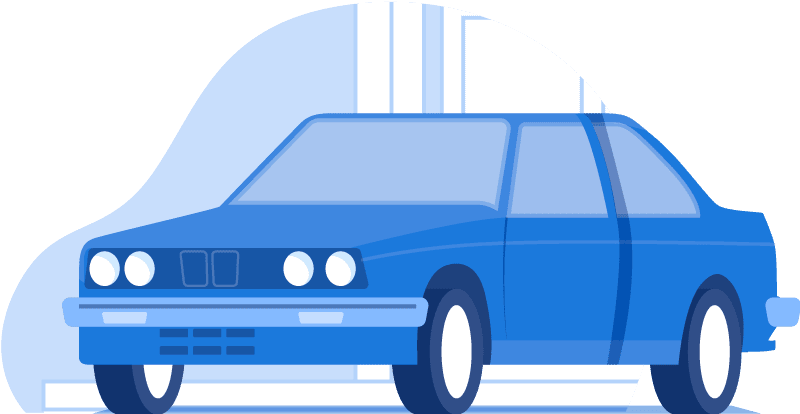Nevada Car Insurance
Providing auto insurance for cars, trucks, and other vehicles in the great state of Nevada.

Frequently Asked Questions
What does "full coverage" mean?
The term full coverage generally means that the insurance policy has both liability coverage and coverage for damage to your vehicle. The term full coverage does not mean that “everything” is covered no matter what happens. Your auto insurance Policy Declaration page lists the coverage you have selected. A Farmers agent can help you select auto insurance coverage that fits your needs and budget.
What can I do to keep my car insurance premiums low?
To keep your vehicle protection expenses low, you could consider driving a more secure, slightly more seasoned, or lower value vehicle. In the event that you have a high premium yet don’t wish to change vehicles, you may decide on a higher deductible and make certain to hold your approach back from slipping by to minimize expenses.
The simplest method to keep your rates low without changing vehicles or going through cash is to maintain a safe driving record. Abstain from moving infringement like speeding and foolish driving. Eventually, make sure to drive as far as possible, drive circumspectly, and lock in – this will assist you with trying not to get tagged, which will make an imprint on your record that normally endures three years in many states.
Why do I need auto insurance?
Accident protection is intended to ensure you and each and every individual who shares the street from the possibly significant expense of mishap related harms or wounds. It is an agreement where you pay a specific sum — or “premium” — to your insurance agency in return for chosen inclusion.
An essential vehicle protection strategy is needed for drivers in many states, albeit the compulsory least inclusion and strategy cutoff points will change. In the event that you money or rent your vehicle, your bank may likewise require explicit vehicle protection inclusions and cutoff points.
Past lawful prerequisites, conveying vehicle protection is a brilliant choice. On the off chance that you cause a mishap or get into one with a uninsured or underinsured driver, you might be considered mindful to cover related costs, for example, vehicle fixes, property harm, hospital expenses, lost wages, lawful charges, and then some. Without the legitimate inclusion, your monetary prosperity might be in danger.
What Is Gap or Loan/Lease Gap Insurance?
Does Auto Insurance Cover Theft?
On the off chance that your vehicle is stolen, various things need to occur for you to be compensated for your loss. To start with, you will need to file a police report and let the police attempt a recovery. In the event that your vehicle isn’t recovered, you can then file a claim with your insurance company if you have comprehensive coverage.
Due to the risk insurance organizations face with false claims, you will have some paperwork to document your case. Providing you have documentation for the stolen vehicle, your insurance will compensate you for the value of the vehicle up to the limit of your comprehensive coverage.
What Does Auto Insurance Cover?
There are several categories of auto insurance, each of which covers a different aspect of your risk as a driver. Here is a brief overview of these types of coverage:
- Liability: If you are deemed at fault in a car accident, liability coverage will pay for repairs, medical costs for injuries suffered by others in the vehicle, plus other expenses related to the accident such as legal fees. Your liability limits are set at the time you purchase your policy. There are two parts to liability coverage: bodily injury liability and property damage liability. The limits are the maximum amount the policy will pay out. Anything above that would come out of your pocket unless you have other insurance.
- Collision: If you hit another vehicle or an object (like a guardrail), your collision coverage will pay for damage or repairs to your vehicle after you pay a deductible (up-front amount). For example, if you have collision coverage with a $500 deductible and you suffer damage that costs $1,500, your collision coverage will pay $1000 after you pay the initial $500.
- Comprehensive: Comprehensive coverage, which is also known as “other than collision,” pays for losses to your vehicle if it suffers damage from something other than an accident. If a tree falls on your car or you were to hit a deer while driving, some portion of that loss will be covered if you have comprehensive coverage. Like collision, comprehensive coverage will have a deductible attached to it.
- Medical expenses: This coverage pays for injuries that you, a family member, or anyone else riding in your vehicle may suffer in an auto accident regardless of who is to blame. It also pays for injuries that you or your family members may incur while riding in other vehicles.
- Uninsured/underinsured motorist: This coverage pays for injuries and property damage you suffer in an accident when the driver at fault either is uninsured or does not have enough insurance to cover your injuries and damage. It will also cover you in the event that a hit-and-run driver flees the scene and you cannot file a claim against that driver’s insurance company.
- Roadside assistance: Many insurance companies offer this optional coverage. In the event that you need a tow or service for a flat tire or dead battery, roadside assistance will provide that service for a nominal premium.
- Rental reimbursement: If your car is in the shop for several days and you need a vehicle, this coverage will provide a rental for you for a nominal premium.
Our Customers
“Getting my quote with eAuto was super easy! Just click, click, and off you go!”
“Comparing auto quotes was causing me quite a bit of frustration. I’m so grateful for eAuto!”
“Glad to have all the paperwork done!”
